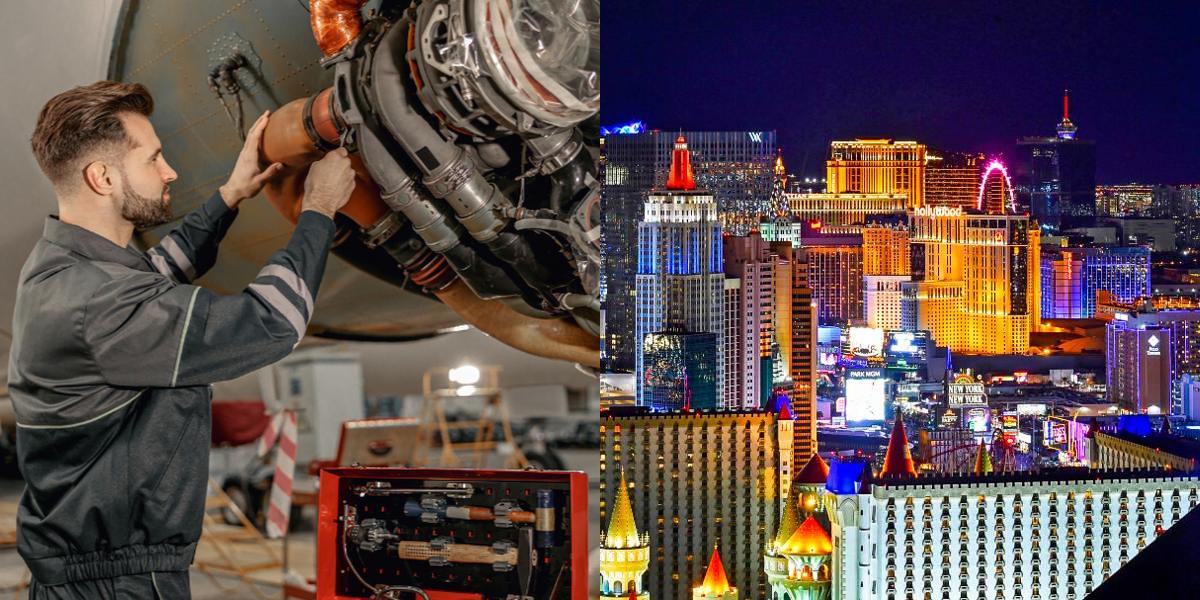How to Become an Aviation Mechanic in Nevada

Aviation mechanics play a crucial role in ensuring the safety and functionality of aircraft. They are responsible for inspecting, repairing, and maintaining various components of an aircraft, including engines, electrical systems, and landing gear. Here is a guide on how to become an aviation mechanic in Nevada.
2. Network within the Industry
Networking is a valuable tool when searching for a job as an aviation mechanic. Attend industry events, such as job fairs, conferences, and trade shows, to meet professionals in the field and learn about potential job opportunities. Joining professional organizations, such as the Aircraft Mechanics Fraternal Association (AMFA), can also provide networking opportunities and access to job listings.
3. Apply to Aviation Maintenance Companies
Research and apply to aviation maintenance companies that are hiring aviation mechanics. These companies may include airlines, aircraft manufacturers, and maintenance repair organizations (MROs). Check their websites and job boards for open positions and submit your resume and application according to their instructions. Tailor your application to each company and highlight how your skills and experience align with their specific requirements.
4. Consider Apprenticeships or Entry-Level Positions
If you are having difficulty finding a job as an aviation mechanic, consider applying for apprenticeships or entry-level positions. These opportunities can provide valuable hands-on experience and allow you to further develop your skills. Even if the position is not directly related to aviation mechanics, it can still provide a stepping stone towards your desired career.
5. Prepare for Interviews
Once you start receiving interview invitations, it is important to prepare thoroughly. Research the company beforehand to gain an understanding of their operations and values. Be prepared to answer technical questions related to aviation mechanics and demonstrate your problem-solving abilities. Practice common interview questions and have examples ready to illustrate your skills and experience. Dress professionally and arrive early for the interview to make a good impression.
Career Paths and Opportunities after Becoming an Aviation Mechanic
Becoming an aviation mechanic opens up various career paths and opportunities within the aviation industry. Here are some potential career paths you can explore:
1. Aircraft Maintenance Technician
As an aircraft maintenance technician, you will be responsible for conducting routine inspections, performing repairs, and maintaining aircraft. This is a hands-on role that requires strong technical skills and attention to detail. Aircraft maintenance technicians can work for airlines, MROs, or aircraft manufacturers.
2. Avionics Technician
Avionics technicians specialize in the electrical and electronic systems of aircraft. They are responsible for troubleshooting and repairing avionics systems, such as communication, navigation, and flight control systems. Avionics technicians can work for airlines, avionics repair stations, or aircraft manufacturers.
3. Quality Control Inspector
Quality control inspectors ensure that aircraft maintenance and repairs are performed according to established standards and regulations. They conduct inspections and audits to identify any deficiencies or non-compliance issues. Quality control inspectors can work for airlines, MROs, or regulatory authorities.
4. Aircraft Sales and Marketing
With experience and knowledge of aircraft systems, aviation mechanics can pursue a career in aircraft sales and marketing. They can work for aircraft manufacturers or dealerships, where they use their technical expertise to assist customers in selecting the right aircraft for their needs.
5. Management and Supervisory Roles
As you gain experience and expertise in the field, you can progress into management and supervisory roles. These roles involve overseeing a team of aviation mechanics, coordinating maintenance activities, and ensuring compliance with safety regulations. Management and supervisory roles can be found in airlines, MROs, and aircraft manufacturers.
Final Thoughts
Becoming an aviation mechanic requires dedication, training, and a passion for aircraft. By following the steps outlined in this article, you can obtain your certification and start your career in this exciting field. Remember to continuously update your skills and stay current with advancements in aircraft technology to ensure long-term success in your career as an aviation mechanic. Good luck!
If this article isn't quite hitting the mark for you, why not give these other articles a try:

Jessa Guzon is a member of the School Growth and Customer Success Team in Dreambound. She finds joy in assisting both schools and students in reaching their goals by answering their queries and connecting them with the right people. Outside her professional role, Jessa is a happy-go-lucky person with a thirst for adventure.




